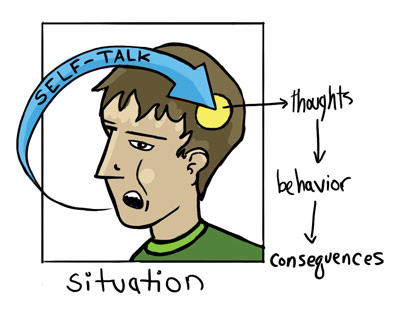Hi all, today I would like to share about the he interesting topic, namely "How to get laziness out of a child", the main reason why I choose that topic because not every parents can detect the cause of lazy child, To overcome laziness in children, parents need to ask their children "how much is your time worth per hour?"...for lazy people, answering this question is very difficult, especially for unproductive adults, Then how do you prevent children from being lazy? So we need to give challenges that the child cannot refuse, for example If you can't read a single page of a book, then you can't play for an hour, or if you can't make 1000 rupiah in a day, then you have to study for 1 hour, The bigger a challenge that could cause injury, the more he will try not to get hurt, so we need to connect the wounds of suffering, children's memories and children's joy, encouraging a child to overcome laziness requires a balance of understanding, motivation, and discipline. Here are some strategies:
1. Understand the Root Cause
✅Check for physical issues: Fatigue, poor diet, or lack of sleep might make the child appear lazy.
✅Identify emotional or mental barriers: Stress, anxiety, or low self-esteem can lead to reluctance.
✅Look for boredom: Sometimes, children lack interest in activities they perceive as dull or irrelevant.
2. Create a Routine
✅Establish a consistent daily schedule that includes time for schoolwork, chores, play, and rest.
✅Use visual aids like charts or planners to make the routine clear and engaging.
3. Set Clear Expectations
✅Clearly communicate what is expected from them in terms of responsibilities.
✅Break tasks into smaller, manageable steps to prevent overwhelming them.
4. Model Good Behavior
✅Children often mimic adults. Show enthusiasm and a proactive attitude toward tasks.
5. Use Positive Reinforcement
✅Praise their efforts, not just results, to build motivation.
✅Offer small rewards for completing tasks, like extra playtime or a favorite treat.
6. Make Tasks Fun
✅Turn chores or study time into a game or competition to engage their interest.
✅Use tools like colorful checklists or timers to add excitement.
7. Encourage Physical Activity
✅Regular exercise boosts energy levels and motivation.
✅Encourage participation in sports or outdoor activities.
8. Limit Screen Time
✅Set boundaries for TV, video games, and other passive activities.
✅Offer engaging alternatives like books, puzzles, or art projects.
9. Teach Problem-Solving
✅Help them brainstorm ways to approach and complete tasks.
✅Encourage independence by letting them make decisions.
10. Be Patient and Supportive
✅Avoid harsh criticism, which can lead to resistance.
✅Encourage a growth mindset by emphasizing that effort leads to improvement.
11. Lead by Accountability
✅Create a system where they are responsible for specific tasks, like packing their school bag or tidying their room.
✅Let them face natural consequences if they don’t complete responsibilities (e.g., missing out on a fun activity).
Raising a child to be proactive and avoid laziness requires consistent effort, positive reinforcement, and a structured environment. Here are some tips:
1. Lead by Example
Children model behavior from their parents. Show them the importance of hard work, discipline, and a proactive attitude in your own life.
2. Establish Routines
Create a daily schedule for activities like schoolwork, chores, and play. Routines help children understand the importance of structure and discipline.
3. Assign Age-Appropriate Responsibilities
Give them small tasks (e.g., tidying up toys, setting the table) and praise them for completing them. This builds a sense of responsibility and accomplishment.
4. Encourage Physical Activity
Involve them in sports or outdoor games. Physical activity boosts energy levels, reduces lethargy, and fosters discipline.
5. Set Goals Together
Help your child set achievable short-term and long-term goals (e.g., completing homework before dinner or saving money for a toy). Reward their progress to reinforce effort.
6. Limit Screen Time
Too much screen time can encourage laziness. Set limits on TV, gaming, and mobile use, and encourage creative or physical alternatives.
7. Teach Time Management
Show them how to prioritize tasks, use planners, or follow simple to-do lists. This helps them stay organized and reduces procrastination.
8. Foster Independence
Encourage your child to try new tasks on their own, even if they fail initially. This builds confidence and a problem-solving mindset.
9. Celebrate Effort, Not Just Results
Praise their hard work and effort, even if they don’t succeed. This helps them understand that persistence is more important than perfection.
10. Stay Positive and Patient
Avoid labeling them as “lazy” or criticizing them harshly. Instead, use positive language to motivate and guide them.
11. Encourage Curiosity and Interests
Support their hobbies or areas of interest, whether it’s art, music, or science. Passion for something keeps them engaged and active.
12. Teach the Value of Rest
Ensure they understand the difference between rest and laziness. Teach them that rest is necessary, but prolonged inactivity can hinder growth.
Consistency and understanding are key. Helping a child develop a proactive mindset takes time, but with patience and guidance, they'll learn to stay motivated and disciplined.


